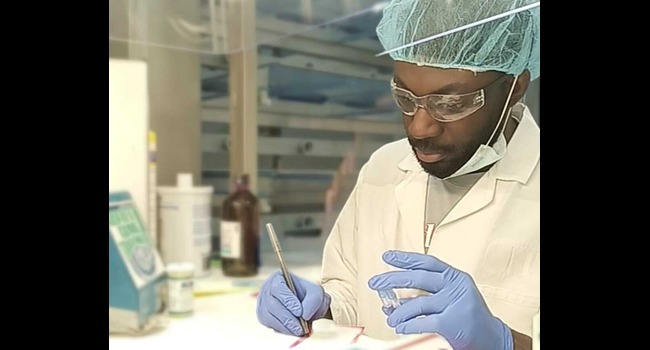By Ajani Salam
In a Lagos neurology clinic, Ireti (name changed) sits with her mother, awaiting an electroencephalography (EEG) test. She is one of millions of Nigerian children battling epilepsy, a non-communicable disease (NCD) shrouded in stigma and misunderstanding. Epilepsy not only isolates sufferers socially but also disrupts their education. Ireti’s frequent seizures force her to miss school, leaving her mother worried about her falling grades.
Last year, Ireti underwent a similar test conducted by Mr. Soluoku, the electro-encephalographist on call at that time. “Epilepsy’s impact on children’s education is a systemic issue”, he says. Mr. Soluoku is one of the leading EEG neurodiagnostic experts and neuroscience researchers in Nigeria and also served as a member of the World Health Organization’s Global Community Mechanism (GCM), a panel of experts on NCD. He is currently a MasterCard Research Scholar at the Faculty of Medicine research facility in the American University of Beirut, Lebanon, where Soluoku’s team is pioneering alternative treatments for temporal lobe epilepsy, including making groundbreaking findings on Lestaurtinib, an FDA-approved drug to address neurological symptoms in adolescents. Despite such advancements seen across research like his, Nigeria’s healthcare system remains ill-equipped to support families affected by epilepsy.
The theme for this year’s World Epilepsy Day “Let’s Shine a Light,” highlighted the urgency of addressing epilepsy and mental health challenges, a situation worsened by the COVID-19 pandemic. In Nigeria, stigma and governmental inaction persist, despite commitments made at the United Nations Third High-Level Meeting (HLM) on Non-Communicable Diseases in 2018. At this meeting, Soluoku and other global experts in the WHO’s GCM submissions were presented and adopted into the UN’s Political Declaration on NCDs. The speed at which countries across the globe passed and adopted this political declaration at the 73rd session of the UN General Assembly (UNGA) in a tittled ‘resolution 66/2’ just two weeks later in an overwhelming unanimous vote only shows how much countries across the world recognizes the effects of NCDs and neurologic conditions, emphasizing the need to combat stigma and discrimination.
Building on the submissions from world leading neuroscientists like Soluoku, Article 11 of the UNGA resolution specifically recognized mental and neurological disorders as significant contributors to the global NCD burden, noting their links to human rights violations, morbidity, and mortality. While this resolution marked a milestone, Soluoku expresses frustration over its slow implementation in countries like Nigeria. “The government needs to realize that committing is not an option,” he says, stressing that the resolution reflects years of research and expertise aimed at improving global health outcomes.
The resolution’s potential impact is immense, affecting nearly half a billion people worldwide with neurological conditions. However, three years after its adoption, Nigeria has yet to effectively integrate its recommendations into national policy. Soluoku emphasizes the importance of a people-centered healthcare system, urging policymakers to bridge the gap between research and action.
The work of experts like Soluoku and the stories of individuals like Ireti underscore the dual challenges of epilepsy in Nigeria: medical and social. Improved diagnostics, innovative treatments, and stronger policies are essential to creating a future where epilepsy patients are no longer marginalized. This World Epilepsy Day, shining a light on these issues is a crucial step toward meaningful change.
Through collaboration, awareness, and policy reform, there is hope for a more inclusive healthcare system that supports those living with epilepsy and other NCDs. As Soluoku asserts, “People living with NCDs deserve a people-centered and integrated healthcare system.” The time to act is now.
READ MORE FROM: NIGERIAN TRIBUNE






